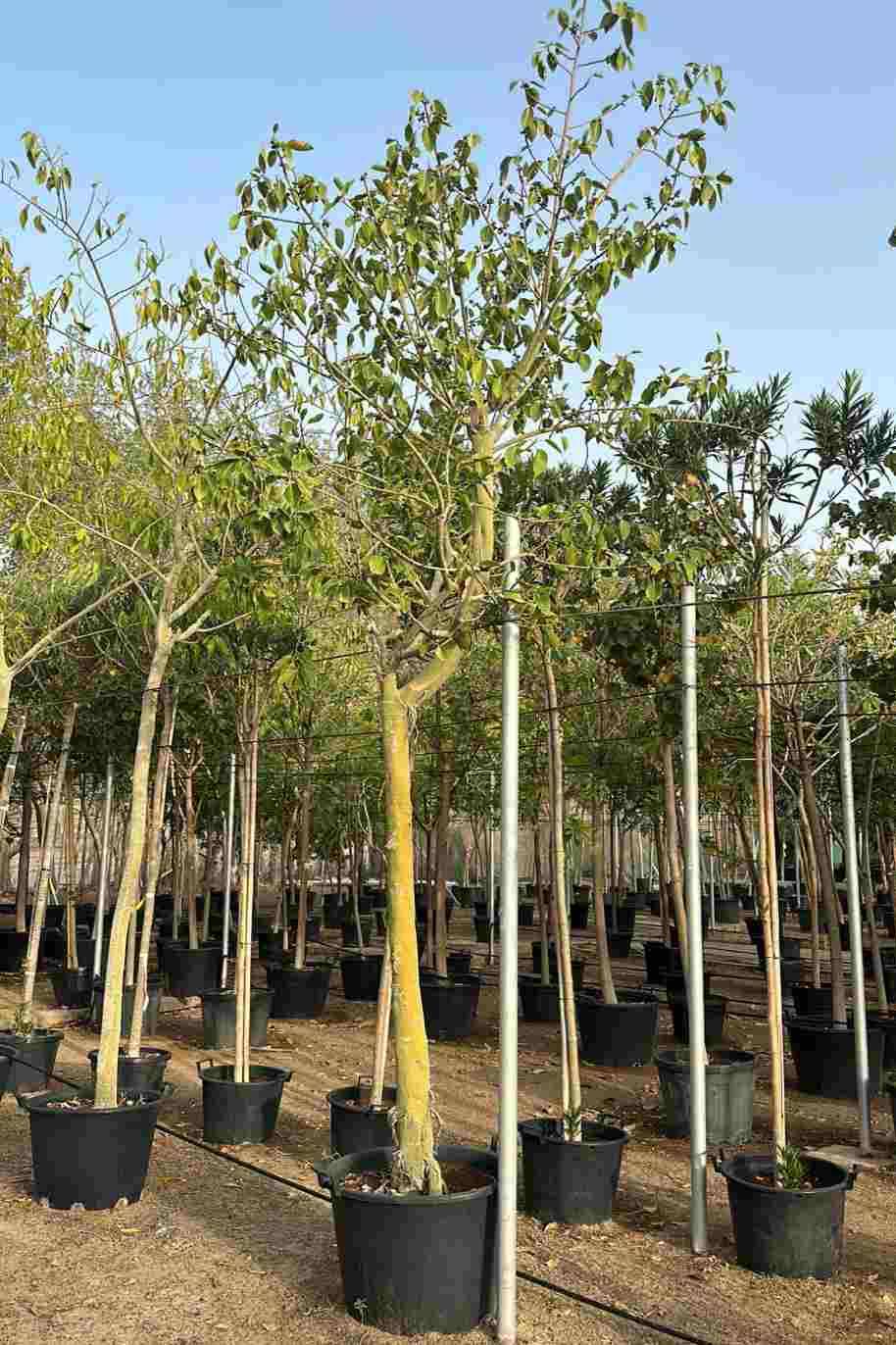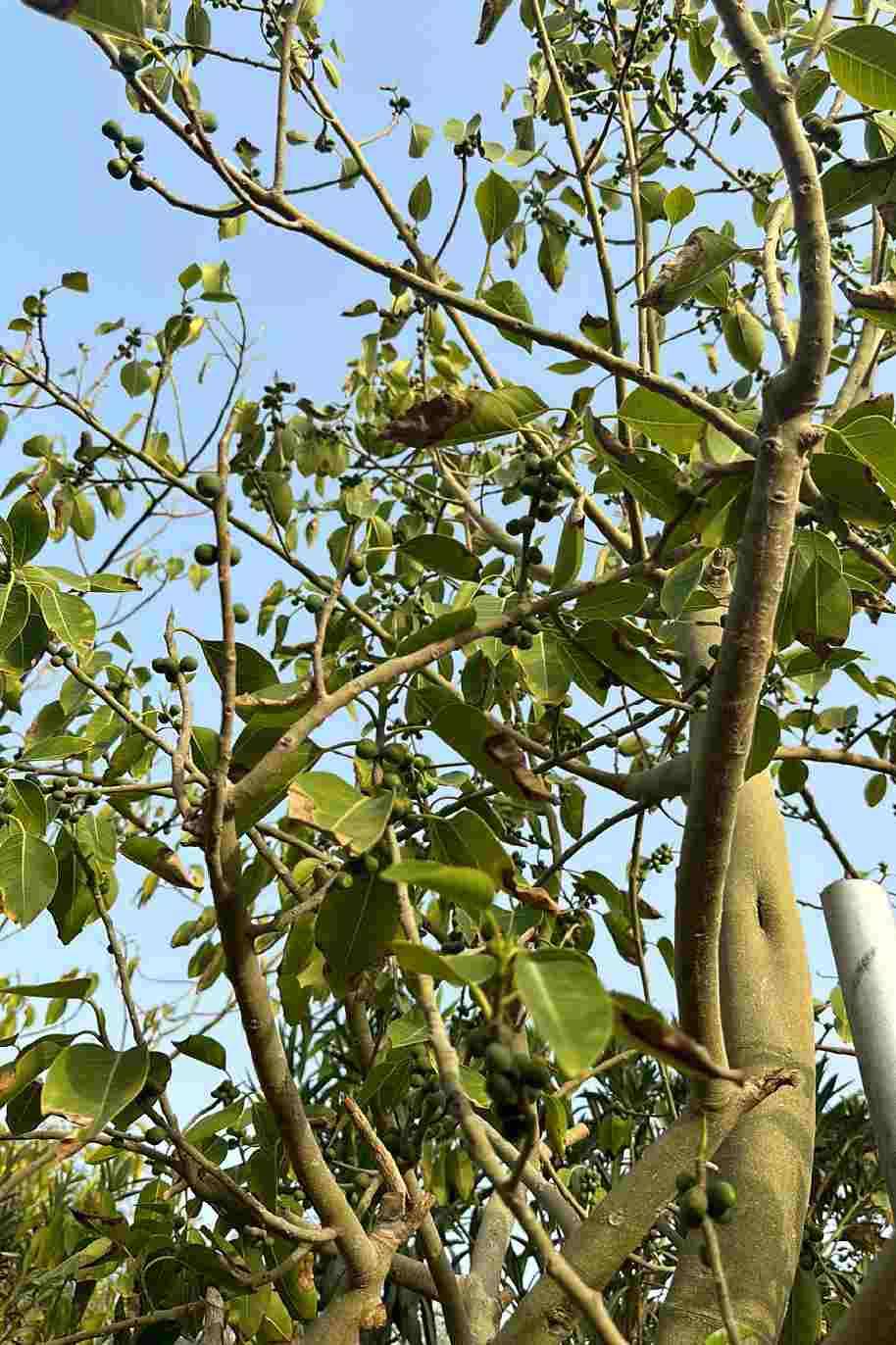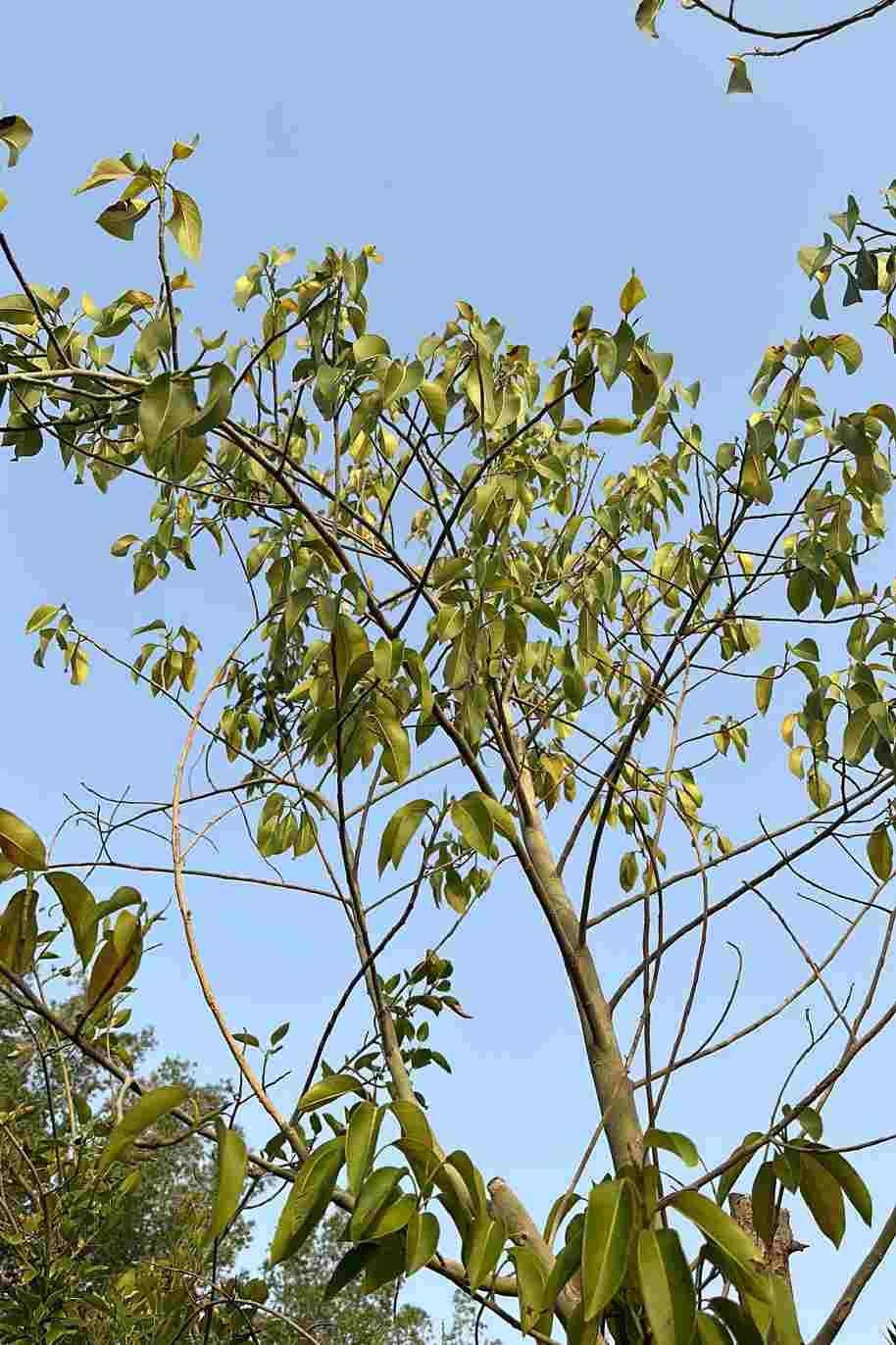Plant Bio
Ficus infectoria, commonly known as the White Fig or the Indian Laurel Fig, is a species of fig tree that belongs to the Moraceae family. Native to South and Southeast Asia, this tree is known for its broad leaves, dense canopy, and ability to grow into a large shade tree. Here's a description and care guide for Ficus infectoria:
Description:
Leaves: The leaves of Ficus infectoria are large, leathery, and elliptical in shape. They are typically dark green and have a prominent, visible network of veins on the underside.
Trunk and Bark: The trunk of Ficus infectoria can be thick and often develops aerial roots that hang down from branches and anchor the tree. The bark is usually gray or brown and may appear slightly fissured as the tree matures.
Fruits: The fig fruits of this species are small and round, turning from green to purplish-black when mature. These fruits are an important food source for wildlife.
Care:
Sunlight: Ficus infectoria thrives in full sun to partial shade. It prefers bright, indirect sunlight but can tolerate some direct sunlight as well.
Climate: This tree is well-suited to tropical and subtropical climates. It can tolerate a range of temperatures but is sensitive to frost. It's best grown in USDA hardiness zones 10 to 11.
Soil: Use well-draining soil that retains some moisture. A mixture of regular potting soil with sand or perlite works well. Ensure good drainage to prevent waterlogging.
Watering: Keep the soil consistently moist but not soggy. Water thoroughly when the top inch (2.5 cm) of the soil feels dry. Adjust the frequency of watering based on the temperature and humidity levels.
Fertilization: Fertilize Ficus infectoria with a balanced, slow-release fertilizer during the growing season (spring and summer). Follow the manufacturer's instructions for application rates.
Pruning: Prune the tree to shape its growth, remove dead or diseased branches, and maintain a desirable size. Regular pruning can also help improve air circulation and sunlight penetration within the canopy.
Aerial Roots: Ficus infectoria often develops aerial roots that hang down from branches and can eventually root themselves in the soil. These roots are a natural characteristic of the tree and contribute to its unique appearance.
Pests and Diseases: While Ficus infectoria is relatively hardy, it can be susceptible to common pests such as aphids, mealybugs, and scales. Regularly inspect the leaves and stems for any signs of infestation and address them promptly.
Landscape Use: Ficus infectoria is often used as a shade tree in parks, gardens, and along streets. It can also be planted in large containers as a decorative element on patios or in courtyards.
Propagation: Ficus infectoria can be propagated from seeds or stem cuttings. Propagation from seeds can take longer, while stem cuttings have a higher chance of success.
Ficus infectoria is a majestic tree that can provide shade, beauty, and a sense of nature to your outdoor space. With proper care, including suitable light, watering, and occasional pruning, your White Fig can thrive and become a valuable addition to your landscape.










